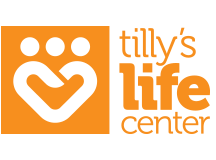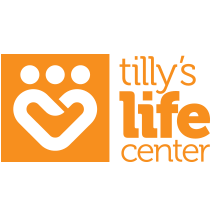
07 Apr Helping Teens Overcome Video Game Addiction
So many teens nowadays have access to the internet, a console, or a mobile device — and spend much of their free time playing video games. A teen spending hours a day playing online might seem normal in today’s society, but this can actually be a sign of video game addiction.
Because video games stimulate the part of the brain responsible for impulses and rewards, a few hours gaming each day can quickly turn into addiction if not properly managed. Unfortunately, it’s actually much more common than you might think. Here is how to help someone with a video game addiction.
What is video game addiction?
Video games are a very common pastime among teens, with 46% of teens playing video games every single day in 2019. This can make it difficult to distinguish a teen who is an avid gamer, and one who is struggling with an addiction. There are a few telltale signs that your teen is struggling with a video game addiction. These include:
- Irritability when not able to play or when losing a game
- Spending up to 12 hours playing video games without noticing the time pass
- Signs of isolation
- Increased stress,
- Missing school assignments or giving up on opportunities just to play video game
Just like any other addiction, video game addiction can lead to some very negative effects in teens, both physically and psychologically. In fact, a study done by California State University showed that video games can have similar effects to substance abuse or alcoholism. Some of the physical effects of video game addiction include back issues, long-term vision changes, headaches, and sleep problems. Mental effects can include a lack of confidence, increased anxiety, and depression. Addiction to video games can also lead teens to indulge in riskier behaviors, or let their grades slip, and relationships crumble.
How to Help Your Teen
When it comes to any type of addiction, it can be difficult as a parent to know what to do. Luckily, for teens who are addicted to video games, recovery is not a lost cause. There are steps you can take to help them break their addiction, and make healthier choices overall.
Communicate with Them
The first step in helping someone with an addiction is ensuring they understand there is a problem. Due to the mainstream nature of video games, many teens don’t see spending most of their time online as an issue, let alone an addiction. Help your teen understand the problem, and what negative effects it can have on their life. Be sure to keep an open stream of communication, providing information, but not pushing too hard, and letting them come to the conclusion on their own that they want to change.
Find the Root Cause
Almost always, there is an underlying cause for video game addiction. Video games are simply the coping mechanism your teen has chosen. According to the Diagnostic and Statistical Manual of Mental Disorders, 86% of people with video game addiction also have an underlying mental health disorder such as anxiety or depression. Finding the root cause and addressing that first will likely have an impact on video game usage. It’s also important to help your teen find healthier coping mechanisms to turn to.
Ease Up Slowly
It might be tempting to cut off your teen’s access to video games right away, to stop the addiction in its tracks. However, that isn’t how addiction works. It’s important to slowly ease off of the video games, rather than taking them away as punishment. Start outlining time limits, certain times of day they can play, or responsibilities that need to be completed beforehand. As difficult as it may be, try not to get upset when they do play video games. Remember, they are struggling too, and it will take time for them to overcome their addiction.
Encourage Other Pastimes
One of the best ways to help teens stop playing video games? Offer other activities instead. The best kinds are ones that get them up and moving, such as sports, walks, bike rides, skateboarding, or any other physical activity. Other good alternatives are things that get their creative juices flowing, like painting or music.
Gaming addiction is real – and serious. It’s not an issue to be taken lightly, and definitely needs attention and care. If you think your teen may have a gaming addiction, it’s smart to discuss your concerns with their doctor.
Tilly’s Life Center is dedicated to giving teens the tools they need to overcome hardship, like video game addiction. With lessons that include time management, coping skills, and mindfulness, your teen will have an easier time working towards a healthier and happier lifestyle – without the need for video games.


